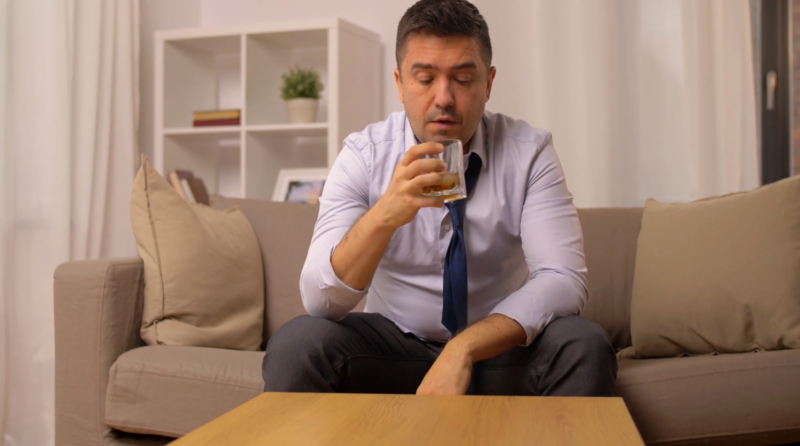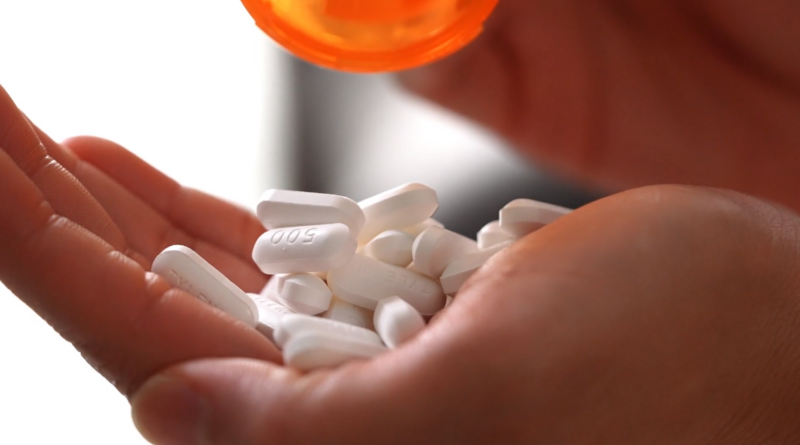If you’re here, chances are you’re grappling with the unsettling reality of withdrawal symptoms. Whether you’re going through it yourself or you’re trying to support someone else, it’s natural to feel overwhelmed and seek answers. One pressing question on everyone’s mind is: How long do withdrawals last?
This blog will be your guide, talking about different substances, withdrawal timelines, and factors affecting the duration and intensity of symptoms.
The Basics
When we talk about withdrawals, we are discussing a complex physiological process. Understanding the basics can help you or a loved one navigate this challenging time more successfully. Withdrawals are physical or mental symptoms that appear when an individual stops or reduces the intake of a substance they are dependent on.
They occur because the body has grown accustomed to the substance for its regular functioning. Once the substance is removed, the body goes through an adjustment period, leading to the symptoms.
Symptoms
The symptoms can range from mild to severe, and they can affect you both physically and mentally. Typical symptoms may include:
- Anxiety or depression
- Irritability
- Fatigue
- Nausea or vomiting
- Sweating or chills
- Heart palpitations
Each substance produces a unique set of withdrawal symptoms, and the severity can vary widely depending on various factors.
Common Substances and Their Withdrawal Timelines
Different substances have different withdrawal timelines. Here’s a breakdown of what to expect for some common substances.
Alcohol

Alcohol withdrawals can start within a few hours to several days after the last drink. It’s crucial to note that alcohol withdrawals can be particularly dangerous and even life-threatening. Symptoms might include:
- Tremors
- Anxiety
- Nausea and vomiting
- Hallucinations
- Seizures
Timeline:
- 6-12 hours: Minor symptoms like sweating and nausea begin.
- 12-24 hours: Tremors and irritability become more pronounced.
- 48-72 hours: Severe symptoms like seizures and hallucinations can occur.
- 5-7 days: Most symptoms generally subside, but psychological symptoms may linger.
Opioids

Opioids, like heroin and prescription pain medications, lead to withdrawals that are painful but generally not life-threatening. Symptoms include:
- Body aches
- Insomnia
- Diarrhea
- Vomiting
Timeline:
- 6-12 hours (short-acting opioids): Early symptoms like agitation and anxiety begin.
- 12-48 hours: Peak of physical symptoms.
- 72 hours – 1 week: Symptoms begin to decline but can linger for weeks.
Factors That Affect Withdrawal Duration

Understanding the various factors that influence withdrawal can help you better manage symptoms and set realistic expectations.
Individual Physiology
Everyone’s body is different, and how you experience withdrawal may not be the same as someone else. Factors like metabolism, general health, and even genetics can play a role in determining how long and severe the process will be.
Usage History
The duration and severity of withdrawals are often directly related to how long you’ve been using the substance and in what quantities. Chronic use tends to result in longer, more severe withdrawal symptoms.
Co-occurring Disorders
Withdrawal symptoms can be complicated by the presence of other medical or psychiatric conditions. If you have a co-occurring disorder like depression or anxiety, your withdrawal process may be more complex and extended.
Managing the Symptoms
When it comes to managing withdrawal symptoms, professional medical advice is paramount. However, some general guidelines can help you understand what’s available.
Medical Treatments
Doctors may prescribe medications to manage the symptoms. For example, benzodiazepines can be used in alcohol withdrawal to prevent seizures, while medications like Methadone and Buprenorphine are often used for opioid withdrawal.
Home Remedies
While not a substitute for professional medical advice, some home remedies have shown promise in alleviating minor withdrawal symptoms:
- Hydration: Dehydration is common in withdrawal. Keep yourself hydrated.
- Balanced Diet: Nutritional deficiencies can exacerbate symptoms.
- Physical Activity: Light exercise can help in boosting mood.
Further Tips for Coping
Beyond understanding what to expect and the factors that affect withdrawal, learning coping mechanisms can provide another layer of support during this difficult period.
Psychological Strategies
Withdrawal often involves intense psychological symptoms like anxiety and depression. While medications can help, integrating psychological strategies like cognitive-behavioral therapy (CBT) and mindfulness can further alleviate symptoms.
- CBT: It helps you recognize patterns in your thoughts and behaviors that may be unhelpful or detrimental.
- Mindfulness: This involves focusing on the present moment and can help manage symptoms like anxiety and impulsivity.
Support Network
Social support is often underplayed but can be a cornerstone in managing withdrawal symptoms. A robust support network can be invaluable in sustaining your morale and providing practical help.
- Family and Friends: Open communication about what you’re going through allows loved ones to better support you.
- Support Groups: Sharing experiences and coping strategies with those who are also going through withdrawal can provide emotional relief and practical tips.
When to Seek Professional Help
Managing withdrawal at home is feasible for some substances and situations but not for all. It’s essential to know when to seek professional assistance.
Severity of Symptoms
Some withdrawal symptoms are dangerous and require immediate medical attention. This is especially true for substances like alcohol and benzodiazepines, where withdrawal can be life-threatening.
Underlying Medical Conditions
If you have pre-existing medical conditions, managing withdrawal on your own can be risky. Consult a healthcare provider for a tailored treatment plan that considers all aspects of your health.
Relapse Concerns
Withdrawal is a high-risk period for relapse. Professional settings can offer the necessary structure and medical supervision to mitigate this risk. Medications can be administered to lessen cravings and manage symptoms, providing a safer environment for detox.
The Role of Aftercare
Once the acute phase of withdrawal has passed, you’re not completely out of the woods. Aftercare is crucial in maintaining the progress you’ve made.
Continued Medical Support
Continued medication may be necessary, especially for substances with long-lasting withdrawal symptoms like opioids.
Therapy and Counseling
Long-term success often involves psychological treatment to address underlying issues that may have contributed to substance abuse in the first place.
Lifestyle Changes
Making fundamental lifestyle changes can also support long-term recovery. This might involve:
- Changing your social circles to avoid triggers
- Adopting healthier eating and exercise habits
- Learning stress management techniques
FAQs
How do withdrawal symptoms compare between men and women?
While the basic range of the symptoms tends to be similar between men and women, the severity and duration can differ. Women often report experiencing more intense symptoms but may go through this phase quicker than men.
Hormonal differences can also impact how the symptoms manifest. Always consult a healthcare provider for a tailored approach to managing the symptoms.
Can age impact the duration or severity of withdrawal symptoms?
Yes, age can be a significant factor. Older individuals may find that they experience more severe or prolonged symptoms. This can be due to a slower metabolism, pre-existing health conditions, or the use of multiple medications that could interact with the symptoms.
Younger individuals are not necessarily in the clear either; developing brains and bodies can react unpredictably to withdrawal.
Can diet and nutrition help manage withdrawal symptoms?
While diet alone can’t cure the symptoms, proper nutrition can support the body as it adjusts to the absence of the substance. Foods rich in antioxidants, lean protein, and healthy fats can help support liver function and overall health. Conversely, foods high in sugar and processed fats can exacerbate withdrawal symptoms like irritability and mood swings.
Is it safe to use over-the-counter medications for managing withdrawal symptoms?
Some over-the-counter (OTC) medications can help alleviate minor symptoms, but they should not be seen as a substitute for proper medical advice. For instance, OTC medications might help manage symptoms like nausea or headaches, but they won’t address more severe symptoms and could interact negatively with other symptoms or medications.
Always consult a healthcare provider before using OTC medications to manage the symptoms.
Can exercise help with withdrawal symptoms?
Exercise can be a useful tool for managing mild to moderate withdrawal symptoms. Physical activity releases endorphins, which can improve mood and help counteract some psychological symptoms like depression and anxiety.
However, it’s important to consult a healthcare provider before beginning any exercise regimen, especially during the process, as some symptoms might make certain activities unsafe.
What are some common misconceptions about withdrawal?
One common misconception is that it is merely a psychological hurdle and not a serious medical condition. This could not be further from the truth, as it is often a complex physiological process that can lead to severe, sometimes life-threatening symptoms.
Another misconception is that ‘cold turkey’ is the best approach for everyone. In many cases, a gradual taper under medical supervision is safer and more effective.
Final Words
Withdrawal is a complex process, and the duration varies from person to person. The substance involved, your physiological makeup, your usage history, and any co-occurring disorders all play roles in how long and how severe your withdrawal will be.
While this guide offers a comprehensive look at the timelines, it should not replace medical advice. Consult with a healthcare provider for an individualized treatment plan that’s right for you. With proper management, you can navigate this challenging time and move towards a healthier future.

